
Background information
19 predictions for gaming in 2026
by Philipp Rüegg

Microsoft’s recent studio closures are a bad omen – and not just for Xbox. A new console is no longer certain, nor is the future of the Game Pass. Its takeover of Activision Blizzard got the ball rolling.
Microsoft is closing four game studios. Sad news, but not particularly noticeable in view of the ongoing wave of redundancies in the industry. What sets this news apart from anything else is that Arkane Austin and Tango Gameworks aren’t only respected studios. In fact, the latter recently produced a surprise hit with Hi-Fi Rush.
Aaron Greenberg, Vice President of Marketing at Xbox, praised the game a month after launch for meeting every metric and expectation. The head of Xbox Game Studios, Matt Booty, clarified just one day after the announcement of the closures: «We need smaller games that give us prestige and awards». Sounds exactly like Hi-Fi Rush. What’s going on at Xbox? As it turns out, quite a bit.
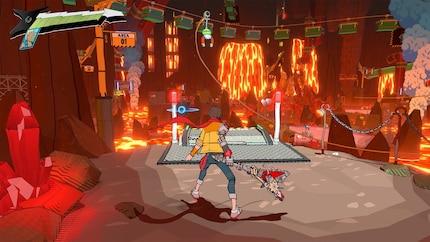
While Microsoft reports record profits and is alternating the title of richest company in the world with Apple, hardware figures are in decline. Sales figures fell by a whopping 31 per cent last quarter. And this after they’d already slumped by 30 per cent compared to the previous year. Nevertheless, the Xbox division is in the black. In the software and subscriptions segment, there was massive 62 per cent growth. This success story hides the real crux of the matter: profits are solely down to Activision Blizzard. The company is making the cash register ring with its mega hits, above all Call of Duty. Without Activision Blizzard, Xbox would’ve recorded a decline of 5 per cent, calculates renowned analyst Daniel Ahmad .
Microsoft spent almost 70 billion dollars on its takeover of one of the last gaming giants. Now «the eye of Sauron has turned», writes industry expert and former Microsoft PR manager Brad Hilderbrand on LinkedIn. So far, the Xbox business has only been a rounding error for the Windows group. After investing billions, Microsoft wants to know how the money will be recouped.
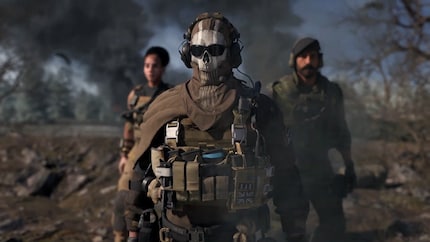
The closures of Arkane Austin, Tango Gameworks, Alpha Dog Studios and Roundhouse Studios are a first consequence of this. Arkane and Tango Gameworks stand out as sacrificial pawns, because they just started developing their next game, or rather began pitching it. A studio in the middle of a development process would be a significantly larger write-off. This doesn’t change the fact that the closures are ringing alarm bells at remaining Xbox studios. If mainstream releases like Redfall and Hi-Fi Rush aren’t enough, what chance do Double Fine, the makers of Psychonauts 2 or Ninja Theory have with their upcoming Hellblade 2?
Activision Blizzard is only the most recent acquisition. Microsoft now owns almost 40 studios. Among other things, they were purchased to strengthen the Xbox portfolio with exclusive titles. In recent years, Microsoft has increasingly focused on Game Pass. Only a constant stream of large and small games makes the subscription service attractive. This has been stalled for some time. Starfield hasn’t developed into the desired mega-hit, Fable should’ve been released years ago, and the new Perfect Dark is said to be struggling with numerous problems. Even former Xbox flagships Gears of War and Halo are no longer secure footholds.
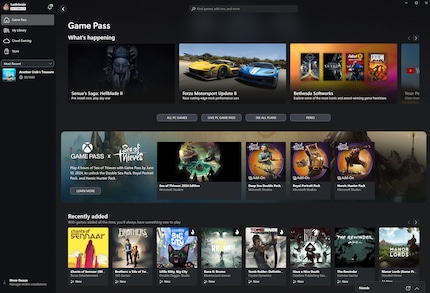
Game Pass has 34 million users across PC and consoles. The service saw particularly strong growth during the pandemic. Phil Spencer, CEO of Microsoft Gaming, announced that Game Pass would be profitable as early as 2022. But its steep growth has levelled off significantly in recent years. In fiscal year 2022, the service should’ve grown 73 per cent. Instead, it «only» grew 28 per cent. Strong growth is necessary to cross-subsidise various games in Game Pass. Now there’s apparently not enough cash to go around. Is the Game Pass model not profitable enough after all?
Take-Two CEO Strauss Zelnick already turned up his nose two years ago in a statement: «[…] it doesn’t make sense. It’s just a lost opportunity for the publisher.» The company behind Rockstar, and GTA, will never release its gangster epic on Game Pass. One blockbuster that may soon be available in the subscription, however, is Call of Duty.
Sarah Bond, president of Xbox, recently confirmed in an interview that every game from Xbox studios will be in Game Pass on release day. Will Call of Duty, which rakes in billions every year, soon be included in the Netflix of gaming? It’s hard to imagine that Microsoft wants to slaughter this cash cow. But there seems to be no way around it. If it doesn’t end up in Game Pass, subscribers will feel put off. They were promised all Xbox Studio titles, including Call of Duty.
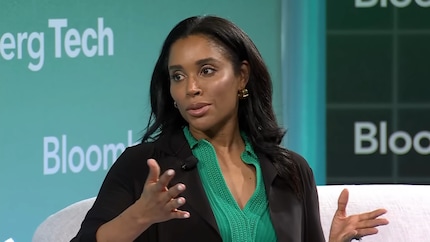
All Microsoft had to do was take a look at TV streaming providers. Year after year, Netflix, Disney Plus and co. increase their subscription prices. Nevertheless, those two are the only ones consistently breaking even. Disney Plus only recently. As a result, the vaunted streaming revolution is increasingly reverting to traditional cable television. Competition in the gaming sector is still manageable, but subscriptions are also struggling. This is aggravated by the fact that games have cost the same for decades, while development costs are rising. In addition, apart from Nintendo, many developers lower the prices of their titles shortly after release. As a result, gamers have long been conditioned to wait for sales.
Consoles that aren’t selling and a subscription service that isn’t profitable enough: the future of Xbox doesn’t look rosy. Many fear Microsoft will follow the same path as EA and Activision before it. Both companies developed from renowned game studios into profit-driven publishers. Both bought numerous studios, only to close them down a few years later or downgrade them to support studios for really big titles. Almost every studio at Activision is working on Call of Duty in some form or another. With Microsoft’s bookmakers breathing down its neck, the Xbox division is facing the same fate. Instead of creative exclusive titles, the future could only hold mega blockbusters released on all available platforms. The successful PS5 port of previous Xbox and PC exclusive Sea of Thieves is probably just the beginning.
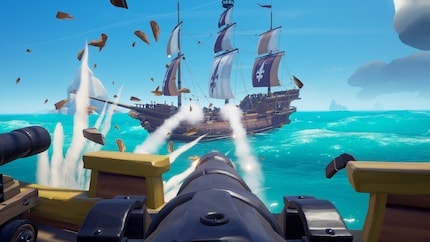
Sony’s PlayStation department has also realised that games costing hundreds of millions of dollars to produce will hardly recoup their costs on just one platform. That’s why more and more games are also appearing on PC. Microsoft is one step ahead of the Japanese competition in this respect. For years, all Xbox titles have been released simultaneously on PC. Poor Xbox hardware figures are likely to accelerate this development and extend it to other platforms. However, the value of the Xbox brand is dwindling even more as a result. A new console is unlikely to change much.
Phil Spencer has already commented on the next Xbox, claiming it’ll make the biggest technical leap of all console generations. But hardware was never the problem. The PlayStation 5 has sold twice as well as the Xbox Series S and X thanks to its better selection of games. This gap is almost impossible to make up. As more and more games are being bought digitally, links to one single platform are stronger than ever. Unlike physical games, you can’t resell them.
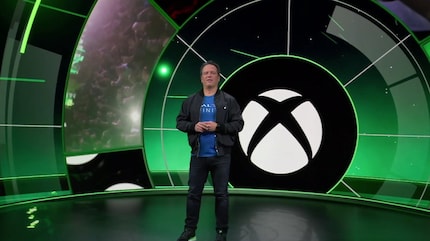
It’s possible that Microsoft will only release one reference console – possibly with an open platform that also allows other stores such as Steam. With an Xbox handheld supposedly planned, Spencer isn’t ruling out such a possibility. These consoles could be produced by usual Windows partners such as Asus, Dell or MSI. Microsoft is first and foremost a service and software company. So why not apply the same principle to the console business?
It’s difficult to estimate what impact a withdrawal from the classic console business would have on the variety of games and development of new consoles. Maybe I’m just being pessimistic, and the Xbox division will turn things around. In any case, it’ll certainly be interesting to see how Phil Spencer and co. present themselves at the next big media event.
As a child, I wasn't allowed to have any consoles. It was only with the arrival of the family's 486 PC that the magical world of gaming opened up to me. Today, I'm overcompensating accordingly. Only a lack of time and money prevents me from trying out every game there is and decorating my shelf with rare retro consoles.
Interesting facts about products, behind-the-scenes looks at manufacturers and deep-dives on interesting people.
Show all
Background information
by Philipp Rüegg

Background information
by Philipp Rüegg

Background information
by Philipp Rüegg